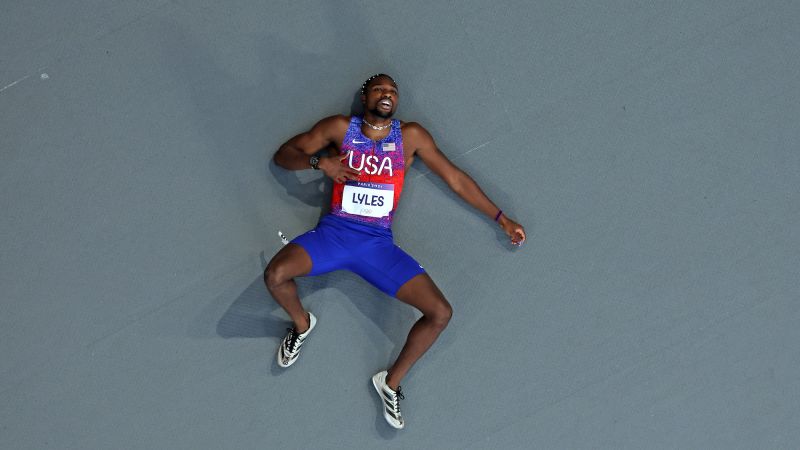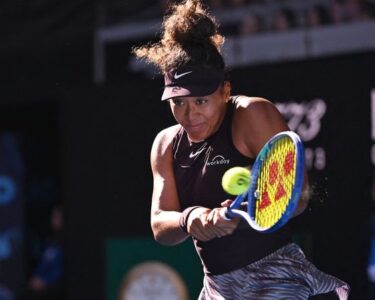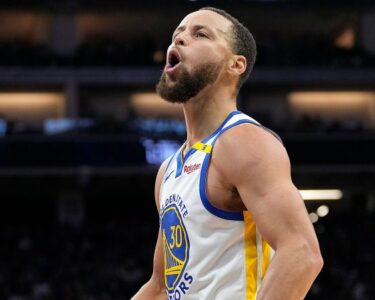Saint-Denis, France
CNN
—
American sprinter Noah Lyles has confirmed that he tested positive for Covid-19 earlier this week and ran in Thursday night’s 200-meter race anyway.
In an interview with US Olympic broadcaster NBC, Lyles said he felt really horrible when he woke up Tuesday morning and has been hydrating while in quarantine.
“I woke up early about 5 a.m. on Tuesday morning and I was just feeling really horrible, and I knew it was more than just being sore from the (100-meter race),” Lyles told NBC. “I woke up the doctors and we tested, and unfortunately, it came out that I was positive for Covid.”
He added, “My first thought was not to panic, you know, I’m thinking I’ve been in worse situations. I’ve run with worse conditions, I felt.”
In an Instagram post early Friday morning Paris time, Lyles said he believes that his Olympics are done.
“I believe this will be the end of my 2024 Olympics. It is not the Olympic I dreamed of but it has left me with so much Joy in my heart,” Lyles said on Instagram. “I hope everyone enjoyed the show. Whether you were rooting for me or against me, you have to admit you watched, didn’t you?
Lyles said he was proud of his performance, despite having Covid.
“We just took it day-by-day trying to hydrate as much, quarantined off. I definitely say that it’s taken its toll for sure,” he said, “but I’ve never been more proud of myself for being able to come out here and getting a bronze medal where last Olympics I was very disappointed, and this time, I couldn’t be more proud.”
The news of Lyles’ positive test came not long after he suffered a stunning defeat in the men’s 200-meter race, his signature event. Lyles finished in third, unable to overcome Botswana’s Letsile Tebogo and his Team USA compatriot Kenneth Bednarek, who finished in first and second place, respectively.
However, the result of the race was quickly bumped from the headlines when Lyles laid down on the track immediately following his crossing the finish line. He was helped off the track by medical personnel in a wheelchair and taken to the medical holding area.
“I’ve had better days, but I’m walking around again,” Lyles told reporters afterward. “I was quite light-headed after that race. Shortness of breath, chest pain, but after a while, I could catch my breath and get my wits about me. I’m a lot better now.”
A surprise finish
It’s a truly shocking turn of events for Lyles, who was hoping to win at least three gold medals at these Olympics. He took the 100-meter race on Sunday by the thinnest of margins and expressed nothing but confidence in his ability to deliver in the 200m and later on in the team relay.
He appeared to be full of his usual energy when he made his entrance for the race, bounding out of the tunnel to pump up the crowd and jumping around the track.
“I already had a bunch of energy. This is by far the best day I’ve felt out of the last three days. Still not 100%, but closer to 90 to 95%. That only works for one shot. I got to settle down for a while. It’s one and done, there’s no holding back.”
He said that he felt like the infection affected his performance, saying, “I’ve had to take a lot of breaks. … I was coughing through the night. I’m more proud of myself than anything, coming out here to get a bronze with Covid.”
Kate Hartman, the chief external affairs officer for the US Olympic and Paralympic Committee, said in a statement that the group supports Lyles’ decision to compete.
After Lyles’ positive test, she said, “The USOPC and USATF swiftly enacted all necessary protocols to prioritize his health, the wellbeing of our team, and the safety of fellow competitors.
“Our primary commitment is to ensure the safety of Team USA athletes while upholding their right to compete. After a thorough medical evaluation, Noah chose to compete tonight. We respect his decision and will continue to monitor his condition closely.”
Lyles told reporters that few people were aware of his diagnosis.
“We were trying to keep this close to the chest. The people who knew were the medical staff, coach, my mom,” he said. “We didn’t want everybody going into a panic, we wanted them to be able to compete. We wanted to make this as free as possible. I’m competitive. Why would you give them an edge over you?”
Tebogo said after the race that he had noticed Lyles not interacting with anyone before they entered the Stade de France’s open air stadium and wondered what was going on.
“During the warmups and in the cold room, he was just there by himself. So, personally, I wondered why,” he said. “I didn’t want to make assumptions of what he could be going through. But, after all he said after the 100-meter final, I thought maybe it’s just one of those days when he’s not having a great day. So I didn’t think of Covid or anything else.”
Covid, an unwelcome guest in Paris
Covid-19 has still made its unfortunate presence known at these Paris Games as Lyles is far from the only athlete to test positive for the virus during the Olympics.
Five players on Australia’s women’s water polo team and Team GB swimmer Adam Peaty tested positive for Covid-19 last week.
Although the world is no longer under a public health emergency due to the Covid-19 pandemic, the Olympic Games come as a wave of Covid-19 infections has hit the United States; even President Joe Biden recently tested positive for the disease.
The US Centers for Disease Control and Prevention recommends that, if you test positive for Covid-19, you stay home until you are fever-free without the help of fever-reducing medications for at least 24 hours and your symptoms have been improving for 24 hours. It then recommends wearing a mask around other people for the next five days.
Separate public health guidance for travelers attending the 2024 Summer Olympic and Paralympic Games was released last week by the World Health Organization, the French Ministry of Health and Prevention, Santé publique France and the European Centre for Disease Prevention and Control.
The guidance recommends checking your vaccination status against common infectious diseases including measles, whooping cough, polio and Covid-19.
This story has been updated with additional reporting.






